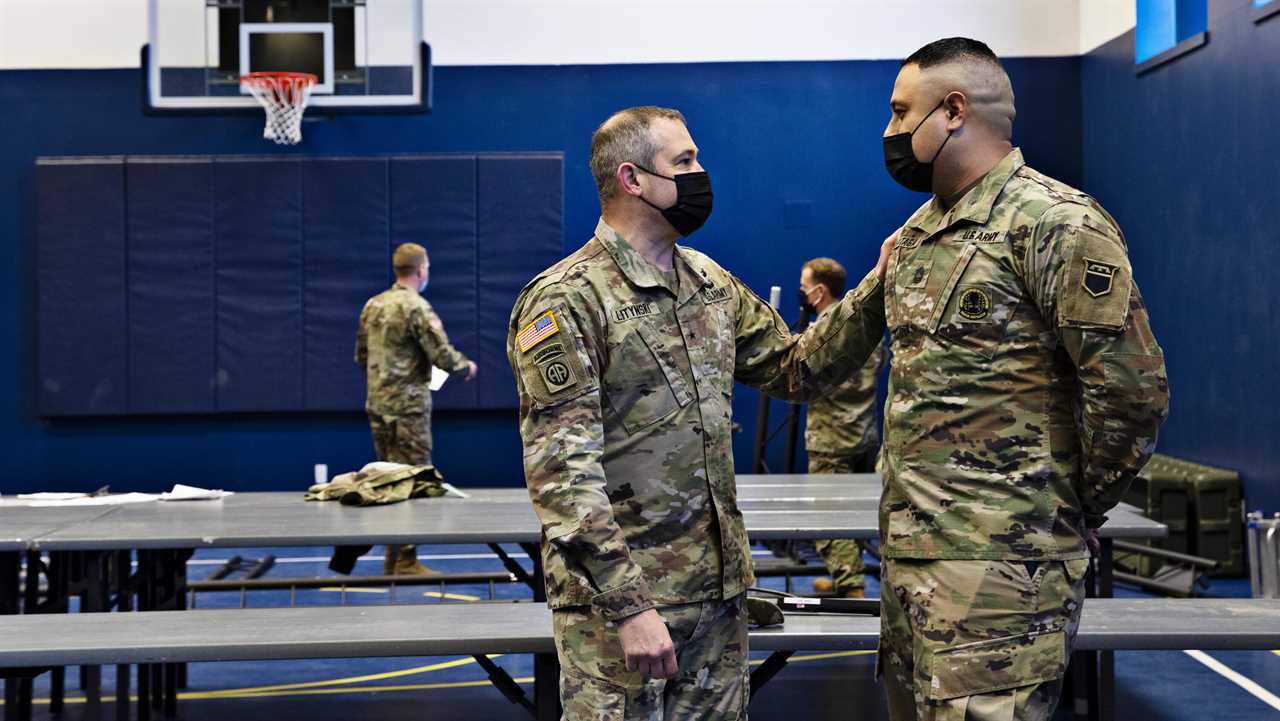
WASHINGTON — Brig. Gen. Ernest Litynski has received numerous awards and decorations during his nearly three decades in the Army. But he is best known among soldiers and his superiors for his campaign to illuminate mental health issues among troops, scraping away bit by bit at the stigma that often leads to tragedy.In meetings with new formations of Army Reserve troops, he might first talk about physical fitness and training before moving on to the story of his own unraveling after he returned from Afghanistan, when he would sit in his darkened basement, ignoring his family and staring into nothingness.“I removed myself from everybody between 2007 and 2010,” he recalled. “I wouldn’t go to family parties, events, wouldn’t go out with my family to eat. I would turn the TV on just for noise. I would not go up to bed with my wife. The burden I put on my wife and 12-year-old daughter had to be the worst.”His daughter did not speak to him for years, he said.He tells his story at ceremonies and gatherings, and made a video that the Army has posted to some of its Facebook accounts, generally a repository for war remembrances, vaccine information and images of cold weather drills. “There’s a shame if you show weakness,” he says, voice wavering as he recounts his struggles with post-traumatic stress. “That’s the way I felt.”General Litynski’s campaign is a striking one within the military, where resilience is not just celebrated but part of the job description.After two decades of war, the military has yet to make significant progress on what many experts, lawmakers and service members say are among its most persistent problems — unaddressed mental health issues and rising suicide rates among troops.“The needle has not moved much at all in this,” said Mark C. Russell, a former Navy commander who is now a professor at Antioch University in Seattle with expertise in military trauma. He added, “So it’s rare when someone with a star on his lapel is speaking out.”The suicide rate among active-duty service members increased by more than 40 percent from 2015 to 2020, according to Defense Department data. The military had historically lagged the general population in suicide rates but in recent years has caught up.A report last year from the Costs of War Project at Brown University found that an estimated 30,177 active duty military personnel and veterans who have served since the Sept. 11, 2001, attacks died by suicide, compared with the 7,057 killed in military operations during the two-decade war against terrorism.Over several years of writing about veterans and military affairs, I have received scores of emails from desperate service members, or their family members, about their struggles with mental health issues and difficulty getting help when they are out of the service. Some families have written about losing loved ones to suicide.Representative Jackie Speier, a California Democrat who serves on the House Armed Services Committee and is retiring when her term ends in January, said the issue was so pressing, “I can guarantee you upfront that is going to be the focus of my work this year.”While some service members, like General Litynski, have suffered from combat-related traumas or injuries, others come into the military with mental health issues that are not revealed in medical screenings, or that later become more intense.The problem mirrors a larger crisis in the nation, with millions of Americans lacking access or not seeking mental health care.ImageGeneral Litynski’s efforts to publicize his mental health issues have struck a chord within the military, where resilience is not just celebrated but part of the job description.Credit...Kim Raff for The New York Times“Members of the military have to function at a very high level and that takes a toll,” said Sherman Gillums Jr., a retired Marine officer and a former senior executive at Paralyzed Veterans of America.“We are taught to mask anything that is wrong with us, to adapt and overcome. Military culture looks at asking for help as a liability, from recruitment to training to the rest of one’s career.”General Litynski was born in Chicago and joined the Army in 1994. He has multiple advanced degrees and military awards over a career that has included tours in Iraq and Afghanistan, and has held a variety of active and reserve component command positions. He is now the commanding general of the 76th Operational Response Command in Salt Lake City.After he returned from overseas in 2009, General Litynski said that his life at work seemed fine, but he would isolate himself in his basement when he returned home at night. “I didn’t do anything,” he said, other than “let time go by.”His few interactions with his family were generally stormy. WhenBy: Jennifer Steinhauer
Title: A General Fights to Destigmatize Mental Health Issues: ‘There’s a Shame if You Show Weakness’
Sourced From: www.nytimes.com/2022/03/19/us/politics/military-mental-health.html
Published Date: Sat, 19 Mar 2022 15:38:15 +0000
Read More
Did you miss our previous article...
https://badpoliticians.com/us-politics/trump-campaign-owes-30000000-in-legal-fees-after-another-failed-nda-case
 UK PoliticsWorld PoliticsVideosPrivacy PolicyTerms And Conditions
UK PoliticsWorld PoliticsVideosPrivacy PolicyTerms And Conditions
